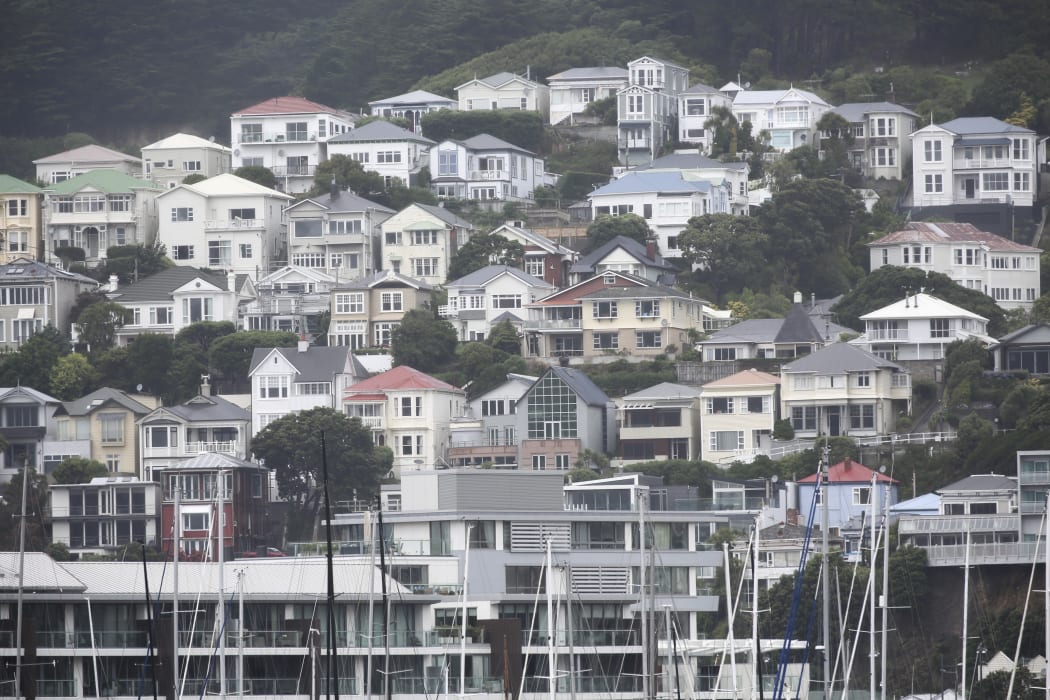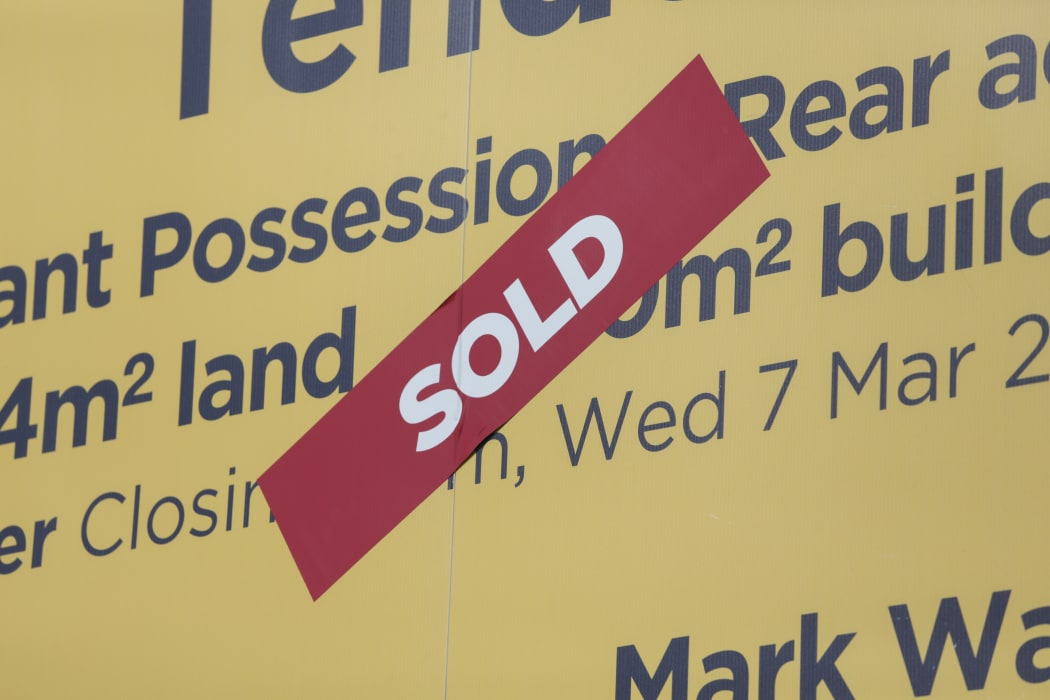By Shamubeel Eaqub*
Opinion - The law curbing foreign purchases of existing New Zealand homes is rushed policy-making and is likely to have an imperceptible impact on the housing crisis.
The Overseas Investment Amendment Bill which passed on Wednesday stops buyers from overseas countries purchasing existing homes. The ban will reduce some competition for local home buyers, but the relief will likely be imperceptible. With this policy, New Zealand, sadly, joins a wider global trend towards insularism and rushed, rather than deliberative and evidence-based, policy making.

Photo: RNZ / Richard Tindiller
The new government made it a priority to ban foreigners from buying homes. The policy has been put together quickly, which has diverted policy resource from other measures that I believe would actually make a big impact on the housing crisis: like an ambitious state house building programme and urgent regulatory reform agenda.
Foreigners no doubt add to demand for housing, both for houses to live in, and in the investment market.
But unless foreign buyers are leaving homes empty, who the homes are owned by makes little difference to our shortage of homes.
Which begs the question: Are foreign buyers leaving homes vacant? The data is not clear. Census data is old, but does not suggest any material increase in foreign buyer hotspots. If we were serious, we could monitor utility use, like water and power, to get a better estimate. More likely, Airbnb and the like have had more of an impact on housing supply. This rushed policy did not seriously try to quantify the problem - it was a solution in search of a problem.
Foreign buyers who may have other motivations, like parking money in a safe country like New Zealand, may be willing to pay much higher prices than locals can justify. This source of demand is probably what the policy wants to affect.
The impact of the policy is likely to be rather small, although it will be larger in some areas like central Auckland and Queenstown. The data is not perfect, but around 3 percent of house sales so far in 2018 have gone to foreigners. Including purchases through corporate structures, I reckon foreigners - in total - accounted for four percent of house sales. So this policy is aimed at locking out four percent of the buyers to help the 96 percent; any benefit will be very small.
And because of exemptions for Australians (about a third of foreign buyers), Singaporeans and large developments, this policy will probably only reduce the presence of foreigners by a couple of percent at best.
More likely, foreign buyers who really want to buy here will do so in new developments as they did in Australia (which has similar policy in place in some states). That has the benefit of not crowding out locals buying second hand houses and contributing to new supply. New supply of course is welcome.

The policy adds more requirements for foreign investors to be involved in projects like build-to-rents. Photo: RNZ / Richard Tindiller
For some context, house sales can move around by huge numbers. In July, house sales in Auckland were up two percent from a year ago. The previous year sales fell by 32 percent. In such a volatile market, limiting 2-4 percent of house sales is not likely to make much of a difference.
The policy also adds more requirements for foreign investors to be involved in projects like build-to-rents (because they would continue to own them) and for equity financing. Following submissions, the policy has been made easier compared to the draft bill. But some foreign capital for new developments and build-to-rents will have to run the gauntlet of the overstretched and truculent Overseas Investment Office. There is still a risk this policy will discourage foreign capital into new housing supply.
The Overseas Investment Amendment Bill was a relatively quick piece of legislation. It will not make much of a difference to making homes affordable and it is a shame the same urgency and efficiency has not been directed at stuff that will make a much larger impact. What we need is urgent reforms in our regulations to make renting better, fast tracking of state house builds, commitment to long contracts for prefab houses for state houses and KiwiBuild, the Urban Development Authority working, refurbishing local governments so they can fund infrastructure, and fixing banking and tax regulation to reduce property speculation.
* Shamubeel Eaqub is an economist and partner at Sense Partners, a boutique economic consultancy. He is one of the authors of a stocktake of New Zealand's housing sector, which was commissioned by Housing and Urban Development Minister, Phil Twyford, and released in February.



